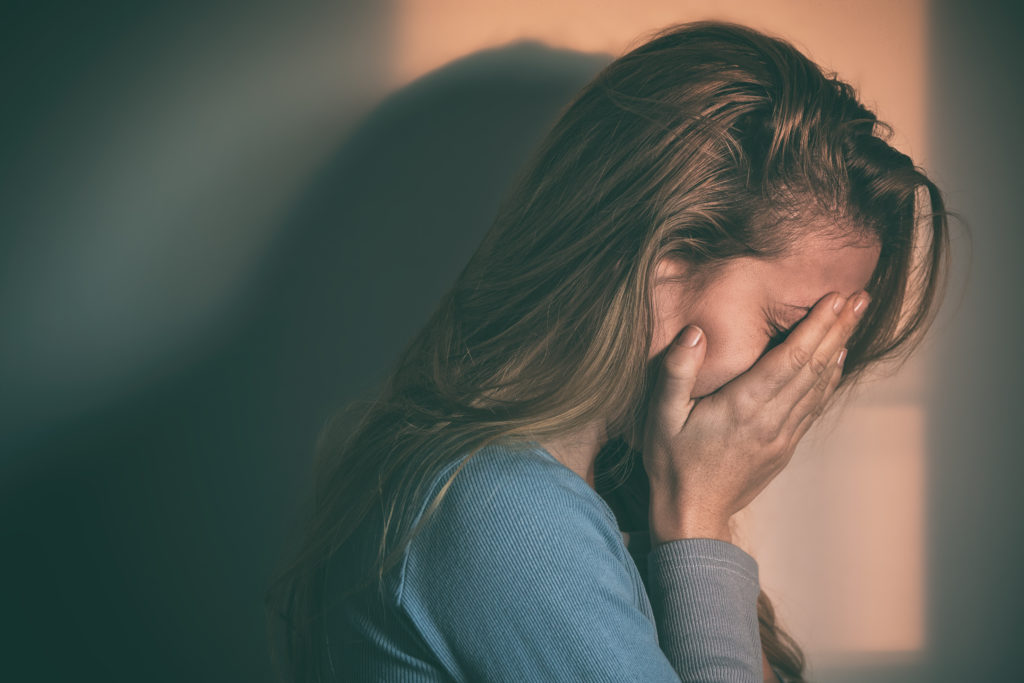Feelings of sadness or short-term emotional lows are typical for everyone. We all experience periods in our lives where we feel unhappy, sad, or unfulfilled. In many cases, these feelings, sometimes called “the blues,” resolve independently after a brief time. Unfortunately, this is not the case for someone who struggles with depression or major depressive disorder. When someone experiences symptoms of depression (clinical depression, major depression, etc.), feelings of deep, painful sadness are persistent, intrusive, and significantly impact our overall quality of life. Contact Casa Serena today to find comprehensive treatment at a Santa Barbara women’s rehab.
What is Depression?
Depression is a type of mood disorder. The alterations in mood associated with depression go well beyond merely feeling “a case of the blues” or “down in the dumps.” The severity of depressive episodes and related symptoms will vary throughout a person’s life.
Major depressive disorder is a highly recurrent illness, with at least half of the people who experience one depressive episode having additional episodes in their lifetime.
Current evidence suggests each additional episode further increases the risk of more. After two depressive episodes, the chance of experiencing depression in the future increases to 70%. That number grew to ninety percent after the third episode. For someone to be diagnosed with major depressive disorder, they must experience at least five symptoms of depression once per day for at least two weeks.
How Does Depression Impact Women?
Although depression is not a diagnosis unique to women, the symptoms of depression impact women in different ways. Some studies indicate that women might be nearly twice as likely to have a depressive disorder than men. Similar research suggests symptoms of depression may present differently in women.
Women often experience intense and overwhelming depression symptoms. Researchers suggested this might be connected to hormonal differences between biological genders. Also, women may experience depression at higher rates than men due to societal expectations placed on women. Women may also experience depression at greater rates than men due to specific biological factors (such as pregnancy, menopause, and childbirth) unique to women.
Depression symptoms in women are often connected to specific life changes. Research suggests that as many as one in seven women experiences postpartum depression during the first year after giving birth. Studies show up to 300,000 women who have experienced miscarriage or stillbirth experience postpartum depression. Perimenopausal depression occurs as a woman transitions into menopause. Again, during this period, women experience significant hormonal changes. General life stressors, personal struggles, and other factors can increase the risk of developing depression during perimenopause and menopause.
What are the Signs of Depression for Women?
The symptoms of depression are generally the same for women As for men. However, as noted above, women sometimes experience more intense symptoms. The severity of symptoms varies from person to person and based on their unique situation. The most common symptoms of depression may include:
- Problems with sleep, including falling asleep or staying asleep.
- Difficulties focusing or concentrating.
- Feeling exhausted “all the time” without another apparent cause.
- Frequent, sometimes significant mood swings.
- Little or no desire to participate in activities or hobbies.
- Feeling anxious or irritable.
- Unplanned (sometimes unhealthy) weight loss
- Talking about suicide or death.
- Engaging in self-harm.
Without treatment to address your depression symptoms, they may worsen with time, putting you at an increased risk for additional physical and emotional health challenges, including substance use disorders and difficulties maintaining healthy, productive relationships with family and friends.
How to Find a Depression Treatment Center for Women
The symptoms of depression can be challenging to manage without support. While depression *(like many mental health conditions) does not have a known “cure,” with professional treatment at a Santa Barbara women-focused treatment program like Casa Serena, depression symptoms can be well managed. Through therapy, you will learn and practice safe and healthy ways to manage the stressors and other factors that lead to episodes of depression.If you, or a loved one, struggles with depression, don’t wait another day to seek help. Our caring and compassionate treatment team will work closely with you to develop a treatment plan focused on your health and treatment needs. Freedom from the weight of depression is only a phone call away. Let us help you start your journey to a healthier, happier you. Contact our admissions team today for more information about our Santa Barbara treatment programs.



